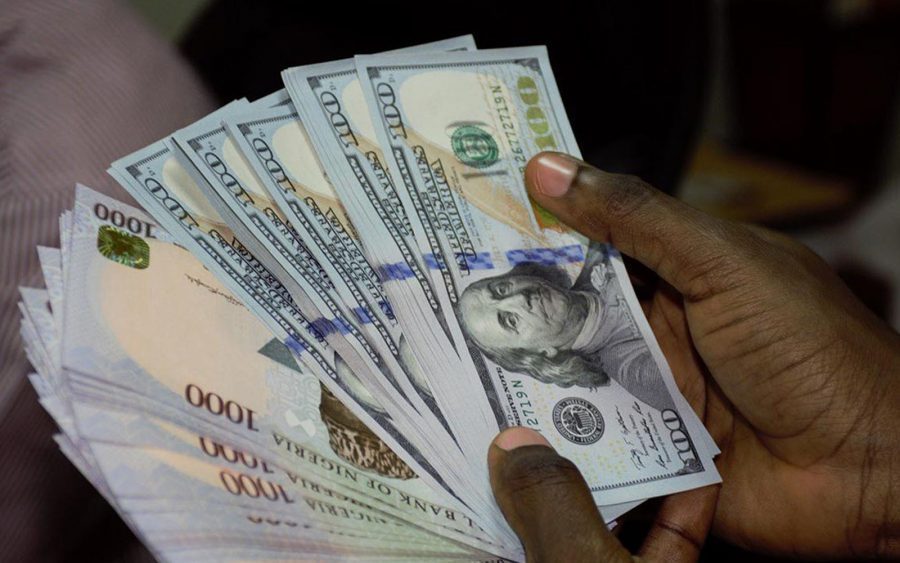🍔Quick Bite: The naira appreciated by 8% last week, possibly driven by the launch of the CBN’s new forex trading platform, EFEMS (Electronic Foreign Exchange Matching System), and seasonal demand from holiday inflows. While the system increased liquidity and transparency, it’s too early to predict if this marks a sustained recovery or a temporary boost.
🧠 The Breakdown
Last week, the naira surprised everyone by gaining about 8% against the dollar. The official rate moved from NGN/USD 1,661 on December 2 to NGN/USD 1,533 by December 6. Even the black market, often miles apart from the official rate, started to close the gap.
But why did this happen? Two main theories are making the rounds: one credits the Central Bank of Nigeria’s (CBN) new forex trading platform, EFEMS while the other points to the festive season and the usual December demand for naira.
Did EFEMS make the difference?
EFEMS, launched on December 2, is the Central Bank’s latest initiative to bring transparency and efficiency to Nigeria’s FX market. The system, powered by Bloomberg’s BMatch platform, allows authorised dealers and banks to trade FX exclusively for spot transactions involving USD and NGN. EFEMS features real-time price publication and buy/sell orders, fostering an environment where market participants can negotiate directly.
A circular signed by Omolara Duke, the Director of the Financial Market Department at the Central Bank of Nigeria (CBN), announced that all foreign exchange transactions in the interbank FX market would now be conducted through the Electronic Foreign Exchange Matching System approved by the apex bank. The circular emphasised that transactions on this platform would be updated in real-time.
It also highlighted that the new system is designed to improve transparency, strengthen governance, and promote a market-driven exchange rate accessible to the public.
Key guidelines from the CBN, such as a $100,000 minimum trade amount and $50,000 increments, aim to standardise operations. Within the first week of EFEMS, market participants reported increased liquidity, with the supply of dollars surpassing demand. Sellers in the EFEMS platform gradually lowered their ask prices, contributing to the naira’s appreciation.
Additionally, the system appears to have shaken the speculative market. Reports suggest that dollar holders in the black market, anticipating further naira strengthening, began panic-selling their dollars, further increasing dollar supply and aiding the naira’s rally.
Or was it just December?
Then there’s the seasonal angle. December is when Nigerians abroad come home for the holidays, and many bring foreign currency (dollars) they need to exchange for naira. This festive flow of foreign currency often gives the naira a little boost.
It’s possible the combination of EFEMS and the usual December demand worked together this time around. But some argue that while the holiday inflow is significant, it alone may not explain the scale of the naira’s appreciation last week.
What does this mean for the Naira?
Is this the beginning of a steady naira recovery? Well, it’s too early to call. EFEMS is barely a week old, so we don’t know how it’ll perform in the long run. The naira’s rally last week could either be a sign of genuine progress or just a temporary reaction to new liquidity in the market.
Also, there’s the big question of whether this appreciation is entirely market-driven or if there’s some behind-the-scenes intervention by the Central Bank. While the convergence of the official and black market rates is encouraging, we’ve been here before, and things didn’t stay rosy for long.
Looking ahead
For now, it’s a wait-and-see situation. With EFEMS bringing transparency and real-time trading into the mix, the naira is seeing some positive momentum.
By making the system more open and market-driven, we’re getting a glimpse of how tech can help stabilise the exchange rate. Whether this trend sticks around will depend on keeping the dollars flowing, strong participation from traders, and staying consistent with these innovations.
📈 Trending Stories
Here are other important stories in the media:
- Nigerian startup Moove drives into US with Waymo partnership. This deal will see the African-based mobility service expand its services to the United States beginning 2025.
- Netflix denies market exit, as it “continues to invest in Nigerian content.”
- Seedstars Africa Ventures I, a venture capital fund focused on early-stage African startups, has reached a significant milestone with a $42 million first close.
💼 Opportunities
Jobs
We carefully curate open opportunities in Product & Design, Data & Engineering, and Admin & Growth every week.
Product & Design
- Hyphen Connect — Freelance Designer, Remote
Data & Engineering
- beehiiv — Data Engineer, Remote
- Mentalyc — Senior Engineering Manager, Remote
Admin & Growth
- Canonical — Senior Marketing Manager, Lagos
- Fireflies.ai — Customer Support, Remote
- Mentalyc — People Operations Manager, Remote
- Patchstack — Content Marketing Manager, Remote
- Condia — Sales and Partnership Associate, Hybrid
Get passive updates on African tech & startups
View and choose the stories to interact with on our WhatsApp Channel
Explore




